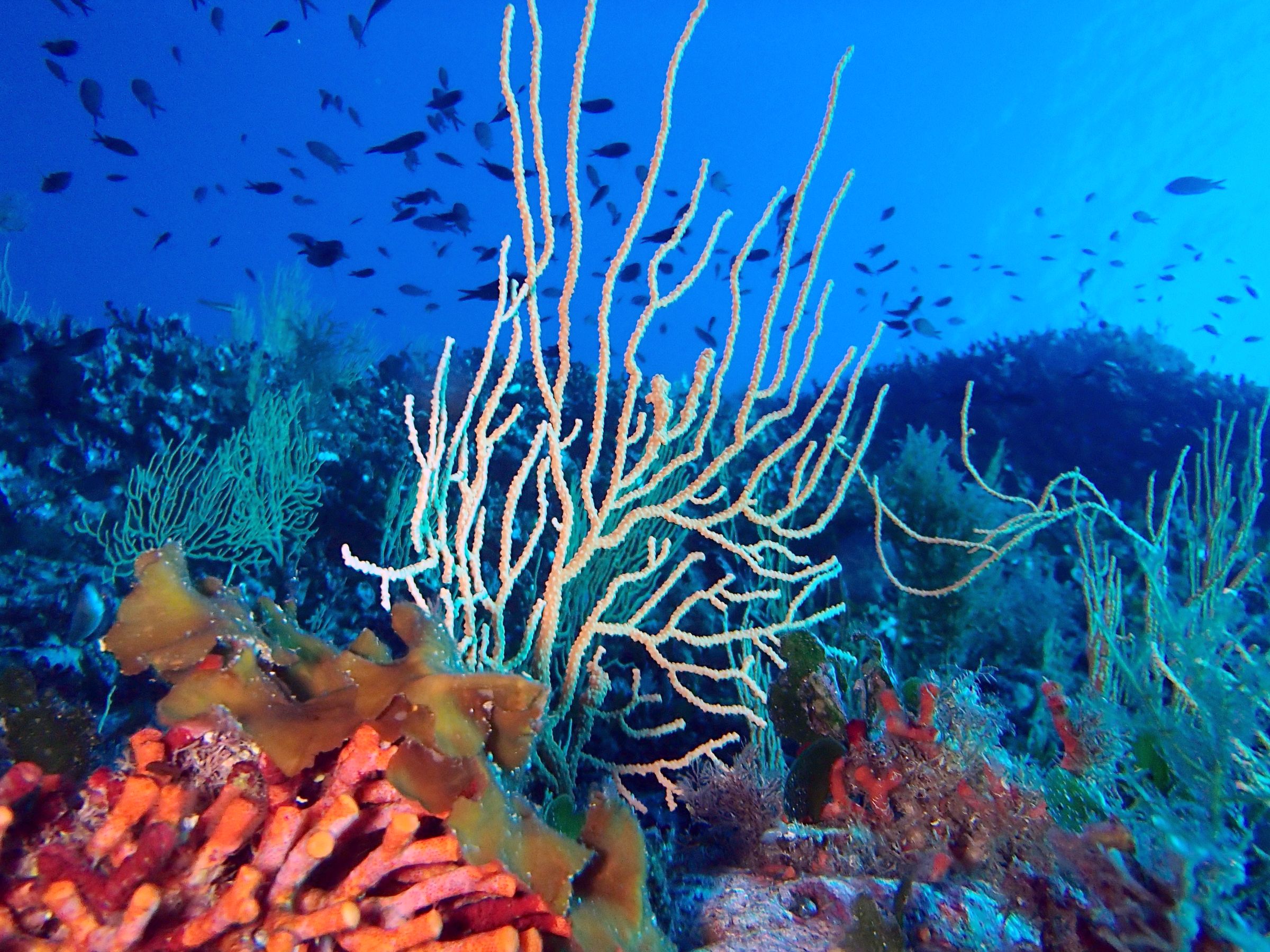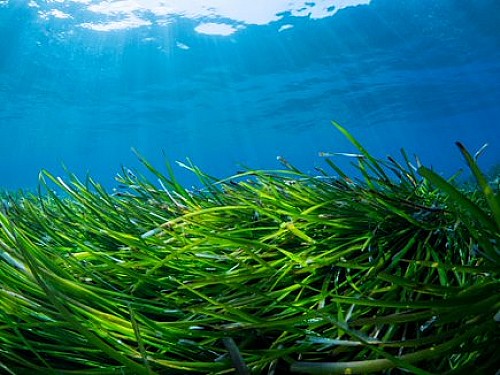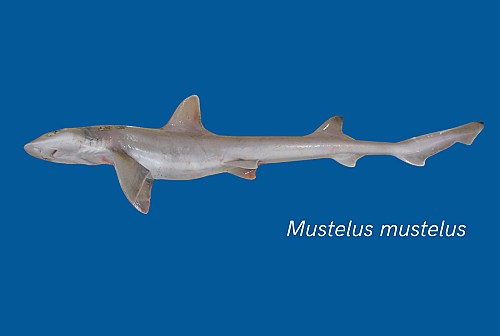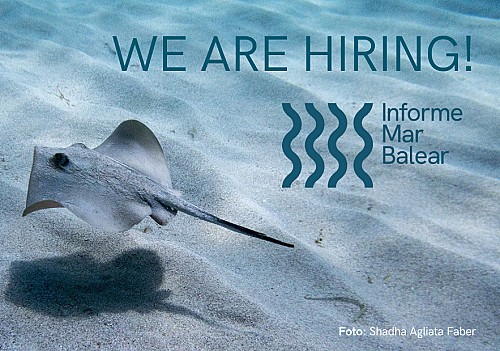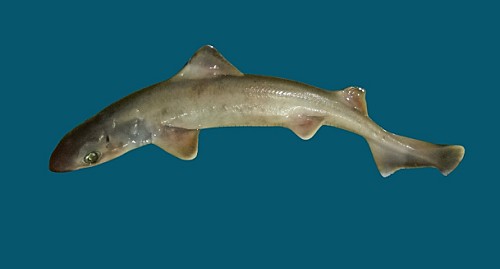Photo: David Díaz
The Mediterranean Sea is warming at a faster rate than the global average. In the Balearic Sea, surface water has warmed by 1.6 ºC in the last 42 years, according to data processed by the Balearic Islands Coastal Observation and Forecasting System (ICTS SOCIB). Associated with the increase in global temperature there is an increase in sea level. In the western Mediterranean, this rise has been 18.5 cm in the last 139 years and the rhythm of the rise has accelerated in recent decades. This rise in sea level could be between 55.2 and 76.5 cm by the end of the century, which would cause the beaches of the Balearic Islands to recede by between 7 and 50 metres, reducing their aerial surface area by half.
The increase in temperature has serious consequences for the marine habitats and species that inhabit the Balearic Sea.
Mass mortalities of corals and gorgonians have been observed. The red gorgonian (Paramuricea clavata) is one of the most threatened by this warming. Its populations in Ibiza and Cabrera are very affected by the increase in temperature, causing it to be unable to live in shallower waters and only to be found at greater depths. Bamboo coral (Isidella elongata) lives at depths of > 1,000 m and is in danger of extinction. Even so, one of the densest populations in the Mediterranean can be found in areas without trawling in the Balearic Sea.
In recent years (between 2019 and 2023), a total of 11 loggerhead or common turtle nests have been located on Balearic beaches. These new nests may be due to the effects of global warming. The turtles could be trying to prevent the effects on the sex ratio by nesting in colder areas: at higher temperatures, a higher percentage of females are born, while at lower temperatures more males are born. Meanwhile, data from the Palma Aquarium Foundation collected in the Balearic Sea Report (IMB) show that the main cause of sea turtle strandings is entanglement in plastic or phantom fishing gear.
The colonisation of the Balearic Sea by various exotic species, some of which are invasive, has also been observed. Most of these species are of tropical and subtropical origin, which contributes to the tropicalisation of the Mediterranean.
The IMB is a collaborative project involving all the marine research institutions on the islands, the regional government of the Balearic Islands, and public and private entities related to the marine environment. The aim is to compile the best available information on the Balearic Sea to guide decision-making based on scientific data.
With the collaboration of ECODES and support from the Ministry for Ecological Transition and the Demographic Challenge, we have updated 27 indicators in the IMB on global change, protected habitats, and emblematic species. This update was part of the 2023 call‘line a’ competitive grants for the development of activities in the general interest considered of social interest in the field scientific and technical research and environmental protection in matters of national competence.

